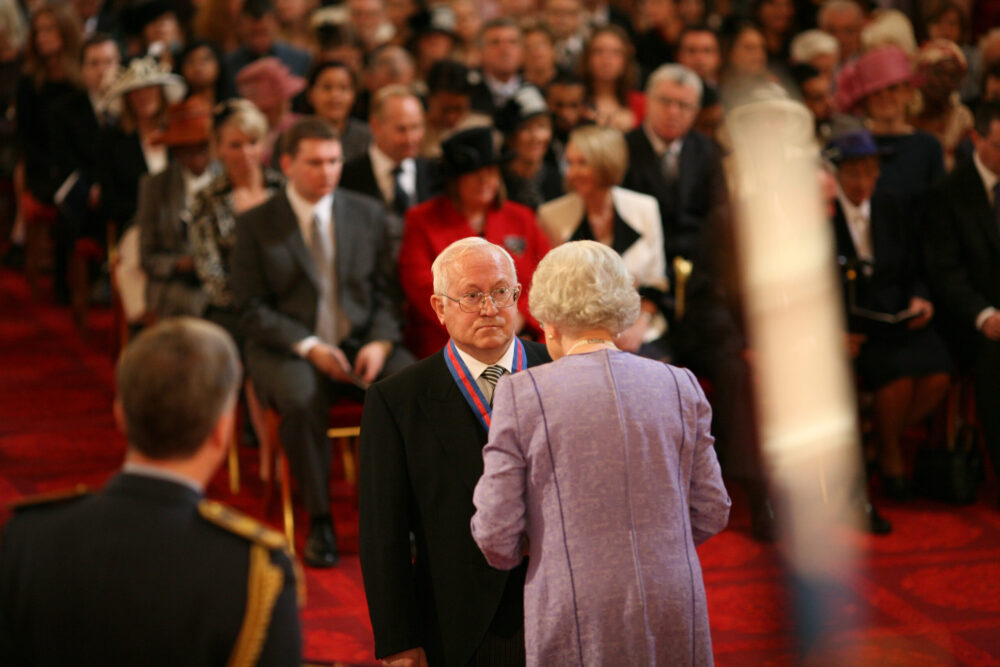KGB defector Oleg Gordievsky who helped change course of Cold War dies aged 86

Oleg Gordievsky, a Soviet KGB officer agent who helped change the course of the Cold War by covertly passing secrets to the UK, has died at the age of 86.
Mr Gordievsky, who had lived in England since he defected in 1985, was considered by historians to be one of the era’s most important spies.
In the 1980s, his intelligence helped avoid a dangerous escalation of nuclear tensions between the USSR and the West.
Surrey Police said officers were called to an address in Godalming on March 4, where “an 86-year-old man was found dead at the property”.
Counterterrorism officers
It said counterterrorism officers are leading the investigation, but “the death is not currently being treated as suspicious” and “there is nothing to suggest any increased risk to members of the public”.
Born in Moscow in 1938, Mr Gordievsky joined the KGB in the early 1960s, serving in Moscow, Copenhagen and London, where he became KGB station chief.
He was one of several Soviet agents who grew disillusioned with the USSR after Moscow’s tanks crushed the Prague Spring freedom movement in 1968, and was recruited by Britain’s MI6 in the early 1970s.
In the 1990 book KGB: The Inside Story, co-written with British intelligence historian Christopher Andrew, Mr Gordievsky says he came to believe that “the Communist one-party state leads inexorably to intolerance, inhumanity and the destruction of liberties” and he decided that the best way to fight for democracy “was to work for the West.”
He worked for British intelligence for more than a decade during the chilliest years of the Cold War.
First strike
In 1983, Mr Gordievsky warned the UK and US that the Soviet leadership was so worried about a nuclear attack by the West that it was considering a first strike.
As tensions spiked during a Nato military exercise in Germany, Mr Gordievsky helped reassure Moscow that it was not precursor to a nuclear attack.
Soon after, US president Ronald Reagan began moves to ease nuclear tensions with the Soviet Union.
Mr Gordievsky was called back to Moscow for consultations in 1985, and decided to go despite fearing — correctly — that his role as a double agent had been exposed.
He was interrogated but not charged, and Britain arranged an undercover operation to spirit him out of the Soviet Union in the trunk of a car.
He was the most senior Soviet spy to defect during the Cold War.
Documents declassified in 2014 showed that Britain considered Mr Gordievsky so valuable that then-prime minister Margaret Thatcher sought an agreement with Moscow that if they allowed Mr Gordievsky’s wife and daughters to join him in London, Britain would not expel all the KGB agents he had exposed.
Expulsion
Moscow rejected the offer, and Baroness Thatcher ordered the expulsion of 25 Russians, despite objections from foreign secretary Geoffrey Howe, who feared it could severe diplomatic relations.
Mr Gordievsky’s family was kept under 24-hour KGB surveillance for six years before being allowed to join him in England in 1991.
He lived the rest of his life under UK protection in Godalming, south-west of London.
In Russia, Mr Gordievsky was sentenced to death for treason while Queen Elizabeth II appointed him a Companion of the Order of St Michael and St George in 2007 for “services to the security of the United Kingdom” – the same accolade held by the fictional British spy James Bond.
In 2008, Mr Gordievsky claimed he had been poisoned and spent 34 hours in a coma after taking tainted sleeping pills given to him by a Russian business associate.
The risks he faced were underscored in 2018 when former Russian intelligence officer Sergei Skripal and his daughter were poisoned and seriously sickened with a Soviet-made nerve agent in Salisbury, where he had been living quietly for years.
Support our Nation today
For the price of a cup of coffee a month you can help us create an independent, not-for-profit, national news service for the people of Wales, by the people of Wales.





Oleg Gordievsky was one of the most significant senior KGB officers ever to defect to the West. At a critical juncture in the Cold War, his intelligence played a crucial role in averting a potential Third World War, which could have escalated into a nuclear conflict.
REST IN PEACE WITH THANKS FROM ALL AT
TheBurlingtonFiles, FaireSansDire & Pemberton’s People